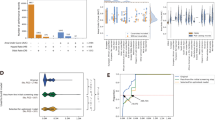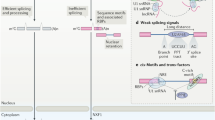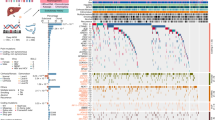Abstract
Background:
Controversial data on the association of single-nucleotide polymorphisms (SNPs, rs3787016G>A and rs10773338G>A) in long non-coding RNA (lncRNA) with prostate cancer risk were emerged. Considering possible genetic differences among populations, we conducted the present study to clarify these discrepancies and re-validate these results in an eastern Chinese population and thus provide clues for new therapeutic targets of prostate cancer.
Methods:
Genotypes of these two SNPs from 1015 ethnic Han Chinese patients with prostate cancer and 1032 cancer-free controls were determined by Taqman assays. Logistic regression models were used to calculate odds ratios (ORs) and 95% confidence intervals (CIs) for risk associations.
Results:
The association of rs3787016 A variant genotypes with a significantly higher prostate cancer risk were found (adjusted OR=1.418, 95% CI=1.090–1.844 for AA vs GG). Stratification analysis indicated that the risk of rs3787016 variant AG/AA genotypes was more evident in younger subjects, ever smoking, patients with Gleason score ⩾7(4+3) and highly aggressive status. All these risks were not present for rs10773338G>A.
Conclusions:
These findings suggested that lncRNA SNPs may contribute to prostate cancer risk in an eastern Chinese population. Larger and well-designed studies with different ethnic populations are warranted to validate our findings.
This is a preview of subscription content, access via your institution
Access options
Subscribe to this journal
Receive 4 print issues and online access
$259.00 per year
only $64.75 per issue
Buy this article
- Purchase on Springer Link
- Instant access to full article PDF
Prices may be subject to local taxes which are calculated during checkout
Similar content being viewed by others
References
Siegel R, Naishadham D, Jemal A . Cancer statistics. CA Cancer J Clin 2013; 63: 11–30.
Sim HG, Cheng CW . Changing demography of prostate cancer in Asia. Eur J Cancer 2005; 41: 834–845.
Cao DL, Ye DW, Zhu Y, Zhang HL, Wang YX, Yao XD . Efforts to resolve the contradictions in early diagnosis of prostate cancer: a comparison of different algorithms of sarcosine in urine. Prostate Cancer Prostatic Dis 2011; 14: 166–172.
Bostwick DG, Burke HB, Djakiew D, Euling S, Ho SM, Landolph J et al. Human prostate cancer risk factors. Cancer 2004; 101: 2371–2490.
Gronberg H . Prostate cancer epidemiology. Lancet 2003; 361: 859–864.
Godley PA, Schenck AP, Amamoo MA, Schoenbach VJ, Peacock S, Manning M et al. Racial differences in mortality among Medicare recipients after treatment for localized prostate cancer. J Natl Cancer Inst 2003; 95: 1702–1710.
Bratt O . Hereditary prostate cancer: clinical aspects. J Urol 2002; 168: 906–913.
Van den Broeck T, Joniau S, Clinckemalie L, Helsen C, Prekovic S, Spans L et al. The role of single nucleotide polymorphisms in predicting prostate cancer risk and therapeutic decision making. Biomed Res Int 2014; 2014: 627510.
Ponting CP, Oliver PL, Reik W . Evolution and functions of long noncoding RNAs. Cell 2009; 136: 629–641.
Selbach M, Schwanhausser B, Thierfelder N, Fang Z, Khanin R, Rajewsky N . Widespread changes in protein synthesis induced by microRNAs. Nature 2008; 455: 58–63.
Nagano T, Fraser P . No-nonsense functions for long noncoding RNAs. Cell 2011; 145: 178–181.
Yeager M, Orr N, Hayes RB, Jacobs KB, Kraft P, Wacholder S et al. Genome-wide association study of prostate cancer identifies a second risk locus at 8q24. Nat Genet 2007; 39: 645–649.
Xu J, Zheng SL, Isaacs SD, Wiley KE, Wiklund F, Sun J et al. Inherited genetic variant predisposes to aggressive but not indolent prostate cancer. Proc Natl Acad Sci USA 2010; 107: 2136–2140.
Xu J, Mo Z, Ye D, Wang M, Liu F, Jin G et al. Genome-wide association study in Chinese men identifies two new prostate cancer risk loci at 9q31.2 and 19q13.4. Nat Genet 2012; 44: 1231–1235.
Jin G, Sun J, Isaacs SD, Wiley KE, Kim ST, Chu LW et al. Human polymorphisms at long non-coding RNAs (lncRNAs) and association with prostate cancer risk. Carcinogenesis 2011; 32: 1655–1659.
Wiklund F, Gillanders EM, Albertus JA, Bergh A, Damber JE, Emanuelsson M et al. Genome-wide scan of Swedish families with hereditary prostate cancer: suggestive evidence of linkage at 5q11.2 and 19p13.3. Prostate 2003; 57: 290–297.
Hsieh CL, Oakley-Girvan I, Balise RR, Halpern J, Gallagher RP, Wu AH et al. A genome screen of families with multiple cases of prostate cancer: evidence of genetic heterogeneity. Am J Hum Genet 2001; 69: 148–158.
Neale BM, Sham PC . The future of association studies: gene-based analysis and replication. Am J Hum Genet 2004; 75: 353–362.
Wang X, Lu M, Qian J, Yang Y, Li S, Lu D et al. Rationales, design and recruitment of the Taizhou Longitudinal Study. BMC Public Health 2009; 9: 223.
Ma L, Bajic VB, Zhang Z . On the classification of long non-coding RNAs. RNA Biol 2013; 10: 925–933.
Li J, Xuan Z, Liu C . Long non-coding RNAs and complex human diseases. Int J Mol Sci 2013; 14: 18790–18808.
Tano K, Akimitsu N . Long non-coding RNAs in cancer progression. Front Genet 2012; 3: 219.
Wapinski O, Chang HY . Long noncoding RNAs and human disease. Trends Cell Biol 2011; 21: 354–361.
Nikolic ZZ, Brajuskovic GN, Pavicevic D, Kojic AS, Vukotic VD, Tomovic SM et al. Assessment of possible association between rs3787016 and prostate cancer risk in Serbian population. Int J Clin Exp Med 2013; 6: 57–66.
Waters KM, Le Marchand L, Kolonel LN, Monroe KR, Stram DO, Henderson BE et al. Generalizability of associations from prostate cancer genome-wide association studies in multiple populations. Cancer Epidemiol Biomarkers Prev 2009; 18: 1285–1289.
Hooker S, Hernandez W, Chen H, Robbins C, Torres JB, Ahaghotu C et al. Replication of prostate cancer risk loci on 8q24, 11q13, 17q12, 19q33, and Xp11 in African Americans. Prostate 2010; 70: 270–275.
Rouissi K, Bahria IB, Bougatef K, Marrakchi R, Stambouli N, Hamdi K et al. The effect of tobacco, XPC, ERCC2 and ERCC5 genetic variants in bladder cancer development. BMC Cancer 2011; 11: 101.
Huncharek M, Haddock KS, Reid R, Kupelnick B . Smoking as a risk factor for prostate cancer: a meta-analysis of 24 prospective cohort studies. Am J Public Health 2010; 100: 693–701.
Gong Z, Agalliu I, Lin DW, Stanford JL, Kristal AR . Cigarette smoking and prostate cancer-specific mortality following diagnosis in middle-aged men. Cancer Causes Control 2008; 19: 25–31.
Rohrmann S, Linseisen J, Allen N, Bueno-de-Mesquita HB, Johnsen NF, Tjonneland A et al. Smoking and the risk of prostate cancer in the European Prospective Investigation into Cancer and Nutrition. Br J Cancer 2013; 108: 708–714.
Moreira DM, Antonelli JA, Presti JJ, Aronson WJ, Terris MK, Kane CJ et al. Association of cigarette smoking with interval to biochemical recurrence after radical prostatectomy: results from the SEARCH database. Urology 2010; 76: 1218–1223.
Roberts WW, Platz EA, Walsh PC . Association of cigarette smoking with extraprostatic prostate cancer in young men. J Urol 2003; 169: 512–516.
Acknowledgements
Financial support for our study from the National Natural Science Foundation of China (Grant number: 81302213), 985-III Cancer Research Project at Fudan University (Grant number: 985III-YFX0102) and Hospital-level fund at Fudan University Shanghai Cancer Center (Grant number: YJ201206) is gratefully acknowledged.
Author information
Authors and Affiliations
Corresponding author
Ethics declarations
Competing interests
The authors declare no conflict of interest.
Rights and permissions
About this article
Cite this article
Cao, DL., Gu, CY., Zhu, Y. et al. Polymorphisms at long non-coding RNAs and prostate cancer risk in an eastern Chinese population. Prostate Cancer Prostatic Dis 17, 315–319 (2014). https://doi.org/10.1038/pcan.2014.34
Received:
Revised:
Accepted:
Published:
Issue Date:
DOI: https://doi.org/10.1038/pcan.2014.34



